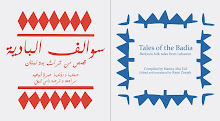The results of the Lebanese elections are out. March 14 won by a confortable margin. I had predicted this win, but I didn't think they would win by such a margin. However, the real winners of the Lebanese elections were:
1. Sectarianism. Electoral turn-out was very large because people voted in small districts dominated by one sect. It is likely that people felt that this scale of elections represents them better. In other words, voting for one's sect is more important than voting for one's nation.
2. Money. Sectarian money showed that it can really sway elections. Massive amount of money was spent on the electoral campaigns, on buying votes and on flying people in so that they can vote fpr one group or another. On a per capita basis, this must be one of the most expensive election ever. Just like Lebanon's debt: one of the highest on a per capita basis.
3. Inherited parliamentarism. A large number of "political families" are represented in this parliament: Frangieh, Karameh, Gemayyel, Murr, and the newest addition: Tuwayni, a family which in record time has sent 3 generations to the parliament.
4. Ultra liberal economics. Both sides subscribe to this creed, but the March 14 people have a more formal, structured approach to its implementation. Rough days ahead for the poor.
Now it is all wait and see: will the winners invite the other side, especially the Shi`a block, to take part in the cabinet? Will they give them veto power as in the last government? What will the role of the President, who aligned himself with the March 14 in Jubayl and lost in his own district, be? Will he get the veto power in government? Will the new government avoid the issue of disarming Hizbullah or will it raise it again? How will this be done? To what extent will it allow itself to be manipulated by regional and global powers such as Saudi Arabia, Egypt and the US, who have been actively promoting March 14? Things might totally get out of control if wrong steps are taken. After all, as As Safir put it, the elections re-created the type of Parliament that brought Lebanon to Civil War in 1975. They called it: the Parliament of Civil Partition.
Monday, June 8, 2009
Subscribe to:
Post Comments (Atom)





+081.jpg)



No comments:
Post a Comment